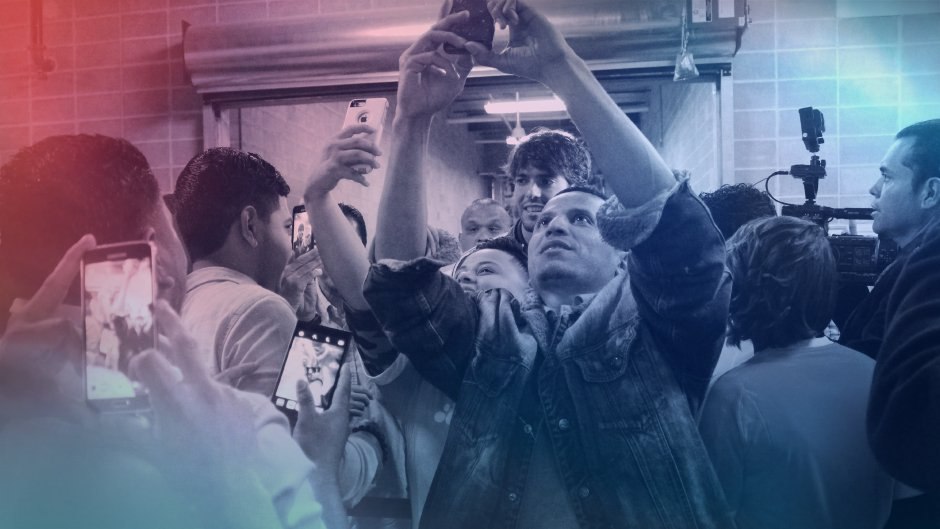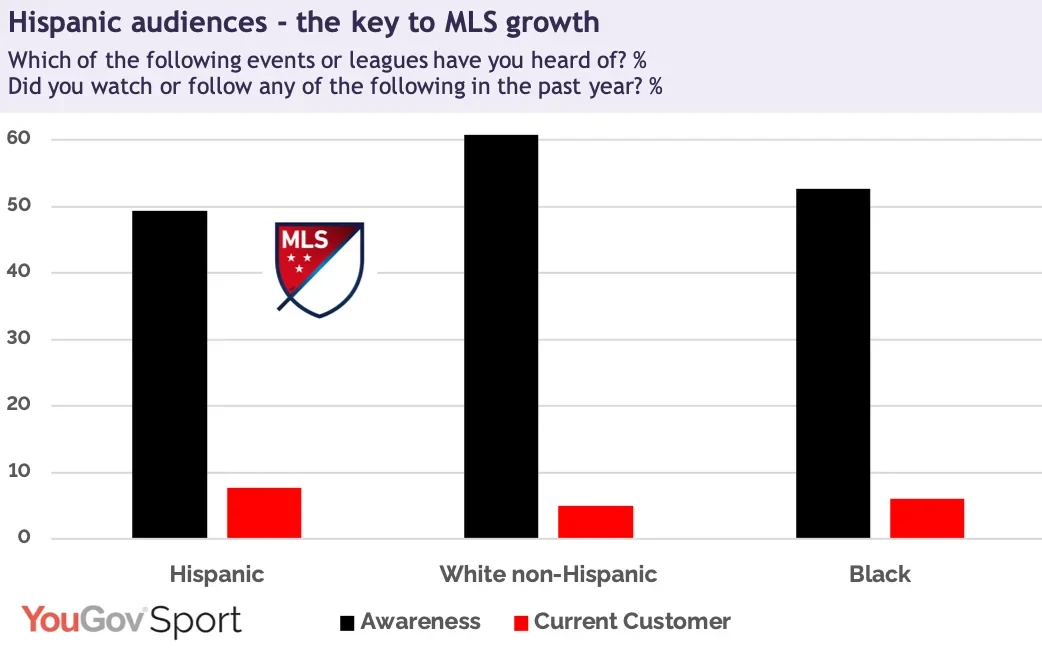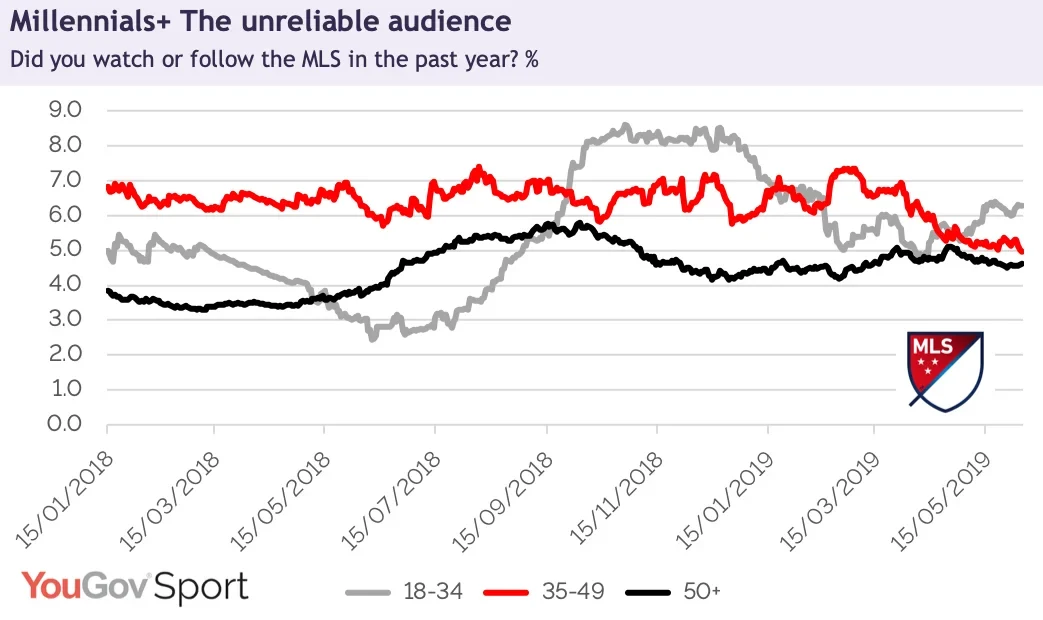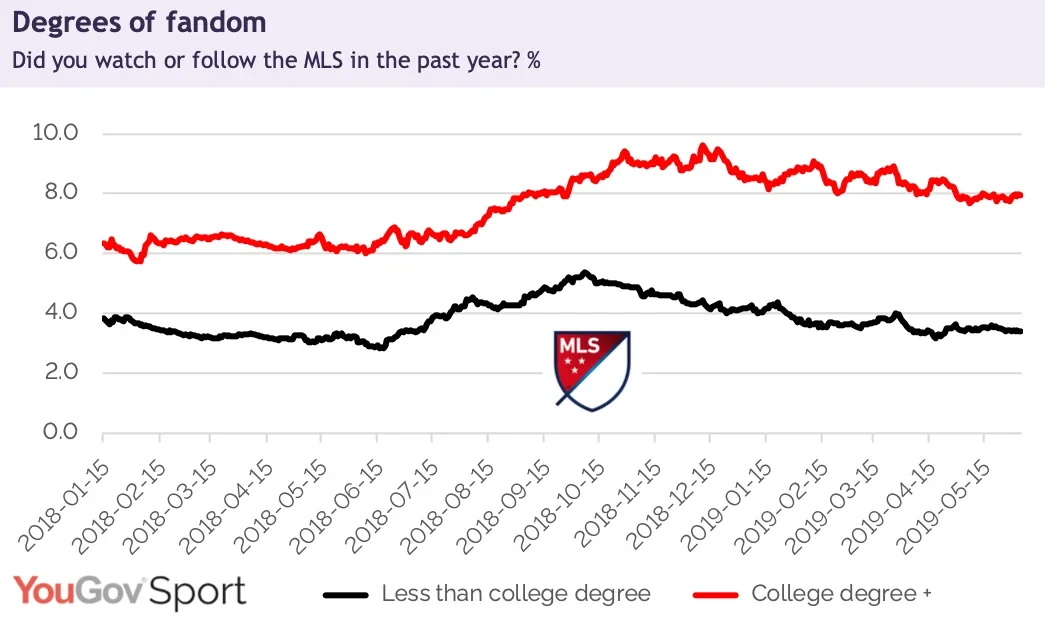
MLS Shorts – Hispanic audiences, millennials, and a college education
Hispanic audiences may be key to driving MLS fanbase
No ethnic group is more likely to watch the MLS than Hispanics. In fact, no demographic segment we looked at (and we looked at age, gender, education, children in the family) is more likely to be an MLS fan than an Hispanic American.
Yet as the chart below shows, Hispanics are the least likely of the three ethnic groups we categorize by to be aware of the league.
This, then, is a relatively untapped market for the league. Growing awareness of MLS among Latino people is most likely to help clubs – and the league – grow fans most quickly.

Photo by Victor Araiza
Millennials + engagement least reliable
Taken as an average over the course of a year, people who fall into the 18-34 year-old age group are the most likely to tell us that they are fans of the MLS (6.6% of them are, compared to 5.7% of 35-49 year-olds and 4.7% of those 50 and older).
But they can’t be counted on for their engagement all the year round. In fact, during the summer months, this age group is least likely to count themselves as a follower of the league. Their fandom is pretty volatile to say the least – more than tripling between summer lows and playoff highs.

Last summer, the dip coincided with the league’s nine-day hiatus to accommodate the FIFA World Cup so, whilst it may be a cyclical anomaly, administrators will want to keep a close eye on how younger people engage in the coming months.
Educating audiences
Few things are more likely to predict MLS fandom as the education of a respondent.
If you got a college education, you are around twice as likely to follow the league than if you didn’t. Yet NCAA soccer is still not wildly popular – Division 1 game attendances are typically around the 1,000 mark. So we’d judge that this effect is more to do with the background and experience of college-educated folks than their education itself.
